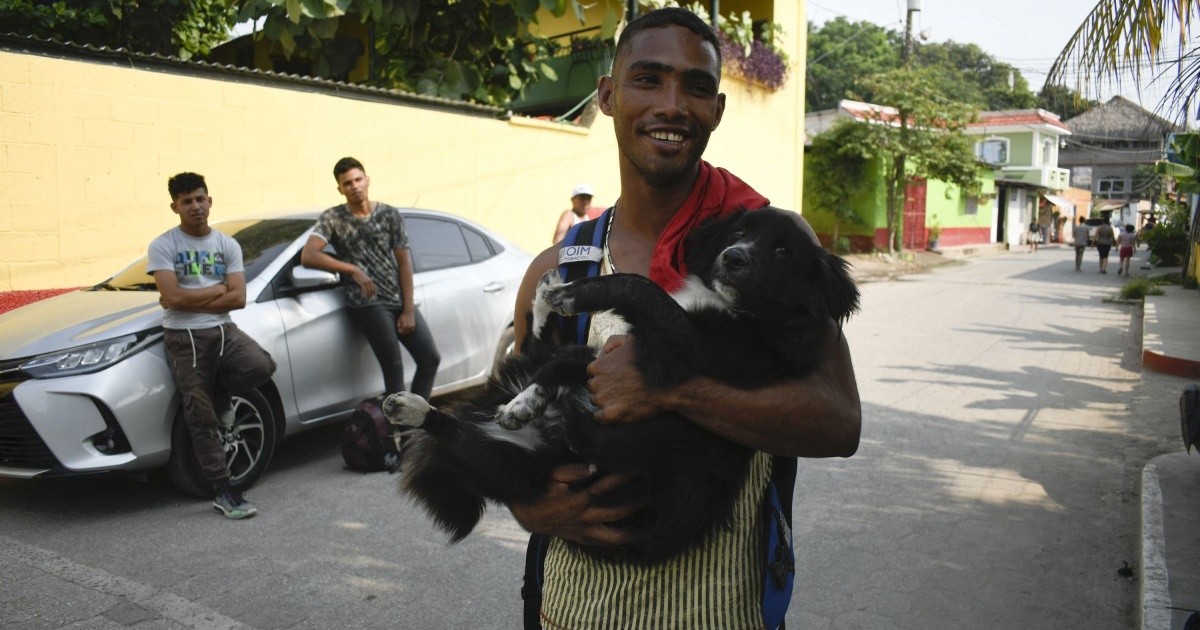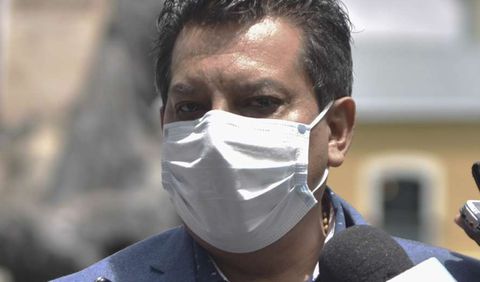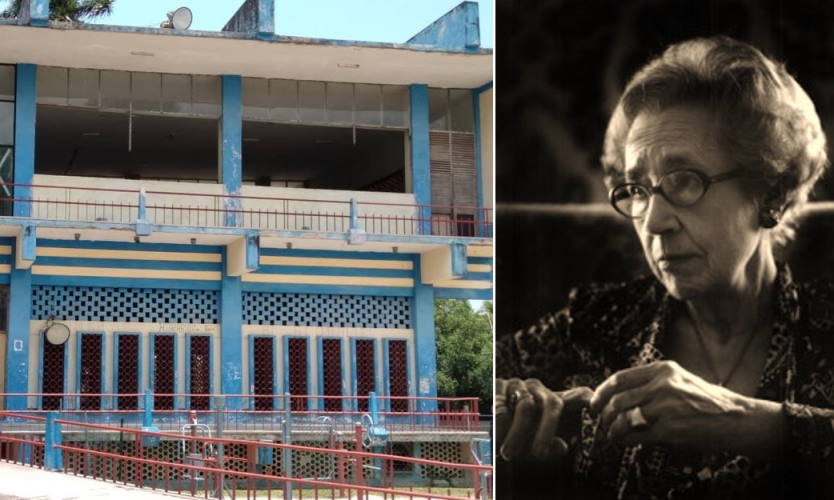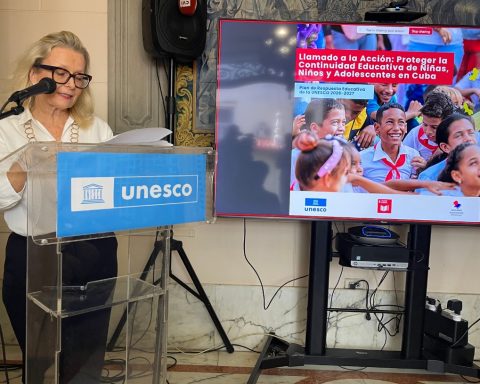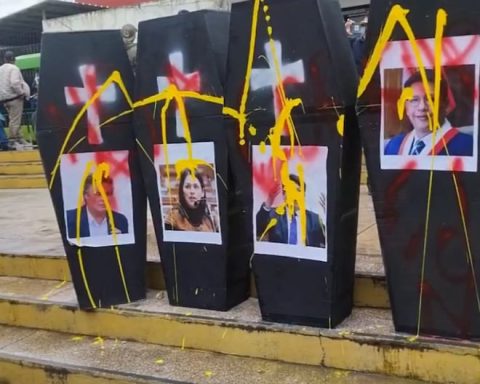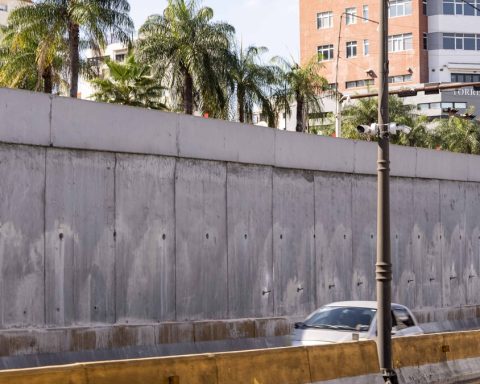Almost two months ago, Gilberto Rodríguez left his wife and two young children in Caracas and began a harrowing trek north through eight countries with his dog, “Negro.”
He has slept on the streets, evaded criminals and had to pay bribes to corrupt Guatemalan police officers, but nothing has taken away his hope of reaching the United States.
Before reaching the Rio Grande, if he manages to reach the last border without being detained and deported by the Mexican police, he must cross another river on the border between Guatemala and Mexico, the Suchiate.
With her mongrel dog in her arms, she pays just over a dollar to get on a raft made of inner tubes and boards.
In 10 minutes, he has arrived in Mexico.
“We have a very critical situation with the economy there. [en Venezuela] and we have to run away. The salary is not enough at all, you buy everything in dollars and what they pay you in bolivars does not pay you anything,” explains this skinny 27-year-old in Ciudad Tecún Umán, in southwestern Guatemala, before crossing the river.
Gilberto and his dog have crossed the dangerous jungle of Darién, between Colombia and Panama, on foot. Then Costa Rica, Nicaragua, Honduras and Guatemala until reaching Mexico.
A US federal judge decided this Friday to maintain Title 42, a decree approved by the government of the former president donald trump in 2020 that allows the immediate expulsion of migrants who enter through the southern border, and that the Biden government aspired to lift this May 23.
But like Gilberto, the vast majority of those who cross the Suchiate River do not know what Title 42 is.
“Ant Scheme”
Contrary to previous months, when throngs of migrants thronged this border, now the flow is small. On the highways, the Guatemalan police constantly board the buses to verify the identity of the travelers.
The migratory flow through Guatemala arrives in “small groups” that do not take long to cross over to Mexico, says Alejandra Godínez, from the Migrant Assistance Office in Ciudad Tecún Umán.
“They dissipate into various groups and then they group together on the Mexican side,” adds Godínez.
“They are doing it like an ant,” explains Rubén Méndez, mayor of Ayutla, the municipality where Tecún Umán is located. He assures that the operations are a deterrent so that migrants do not try to form new caravans like the ones that used to leave Honduras, mainly since 2018.
Between January and May, Guatemala has expelled some 303 people from Honduras, El Salvador, and Nicaragua who did not meet the immigration and health requirements required by the pandemic.
It has also expelled 69 Venezuelans and 165 Cubans, in addition to another 86 people of different nationalities.
The last caravan of some 500 migrants was broken up in January, as soon as it entered Guatemalan soil. A year earlier, an exodus of some 7,000 people was contained with batons and tear gas.
Gilberto, with his backpack on his shoulder, says that in some sections of Guatemala the uniformed men demanded money from him to allow him to continue.
“the pod [asunto] He is with the police who take our money,” he says.
dangers
With his little two-year-old mongrel dog with dark fur, Gilberto has overcome various dangers.
“In the Darién jungle we came with some women and they raped them, they stole our phones,” he says about this stretch of road where criminal gangs abound.
Along the way, pet and master have survived on charity and shared the same dish. They have also slept on the street, as some shelters do not allow animals.
One day before embarking on the river, Gilberto, “Negro” and nine other walkers make a stopover at the Casa del Migrante, a humanitarian organization that has a location on this border. There they feed.
“We have come between mountains, rivers, streams, (and) the police robbing us,” says Moisés Ayerdi, a 25-year-old Nicaraguan who says he is fleeing poverty and repression in his country, where he left his wife and three-year-old daughter. years.
They all want to get a job in the United States to send money to their families, and then finance their trip to reunite.
The rustic boat on the Suchiate is pushed by a man with a long stick. As soon as they touch the shore on the Mexican side, “Negro” jumps out of his master’s arms and steps forward on the path.
He is no longer just a dog, he is also “a migrant,” says Gilberto, still smiling.
